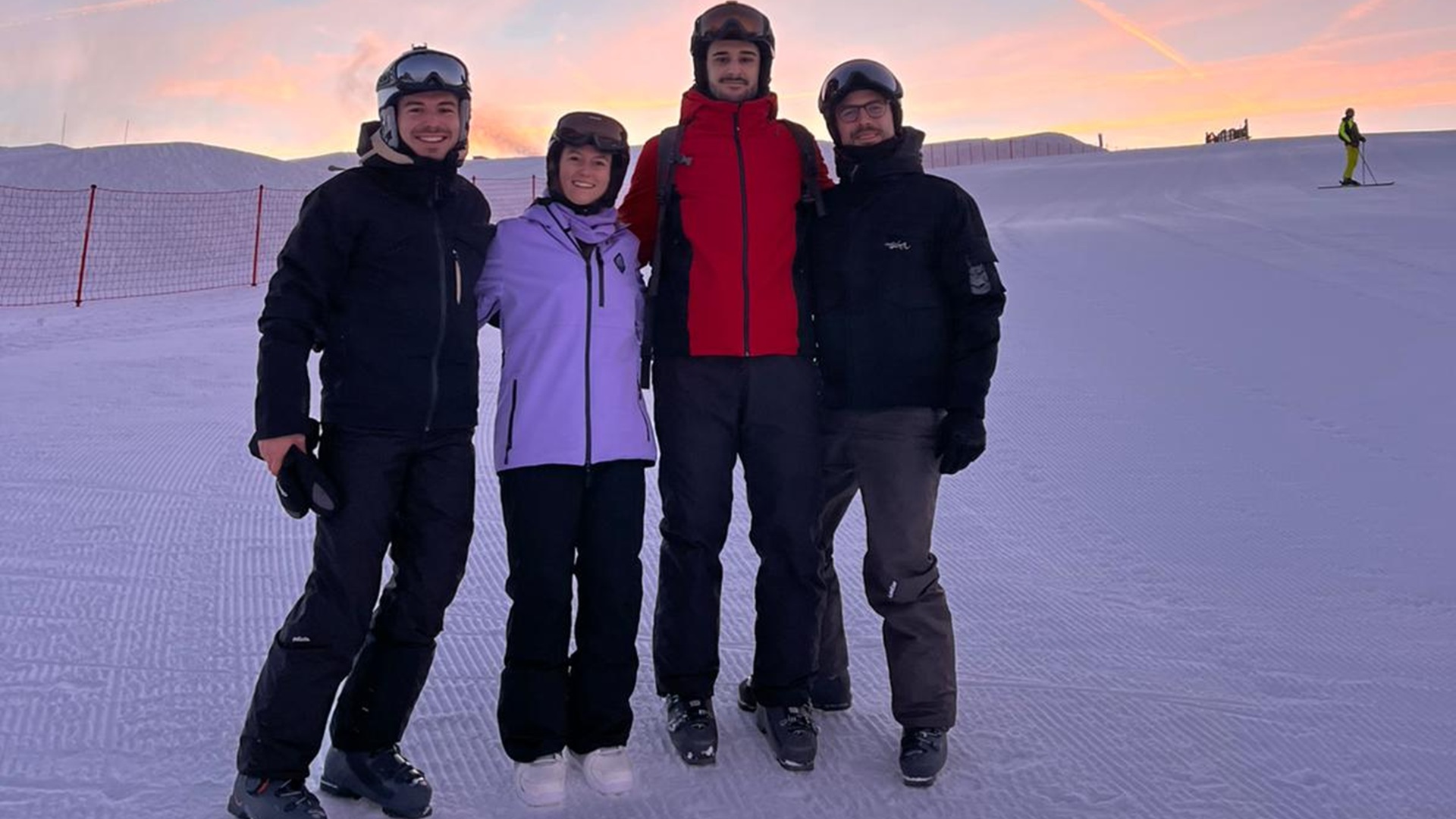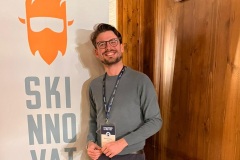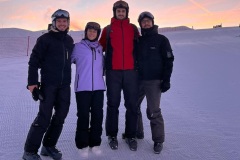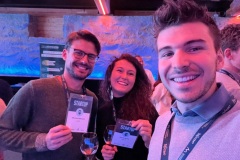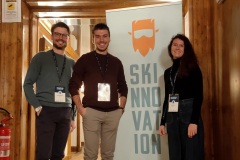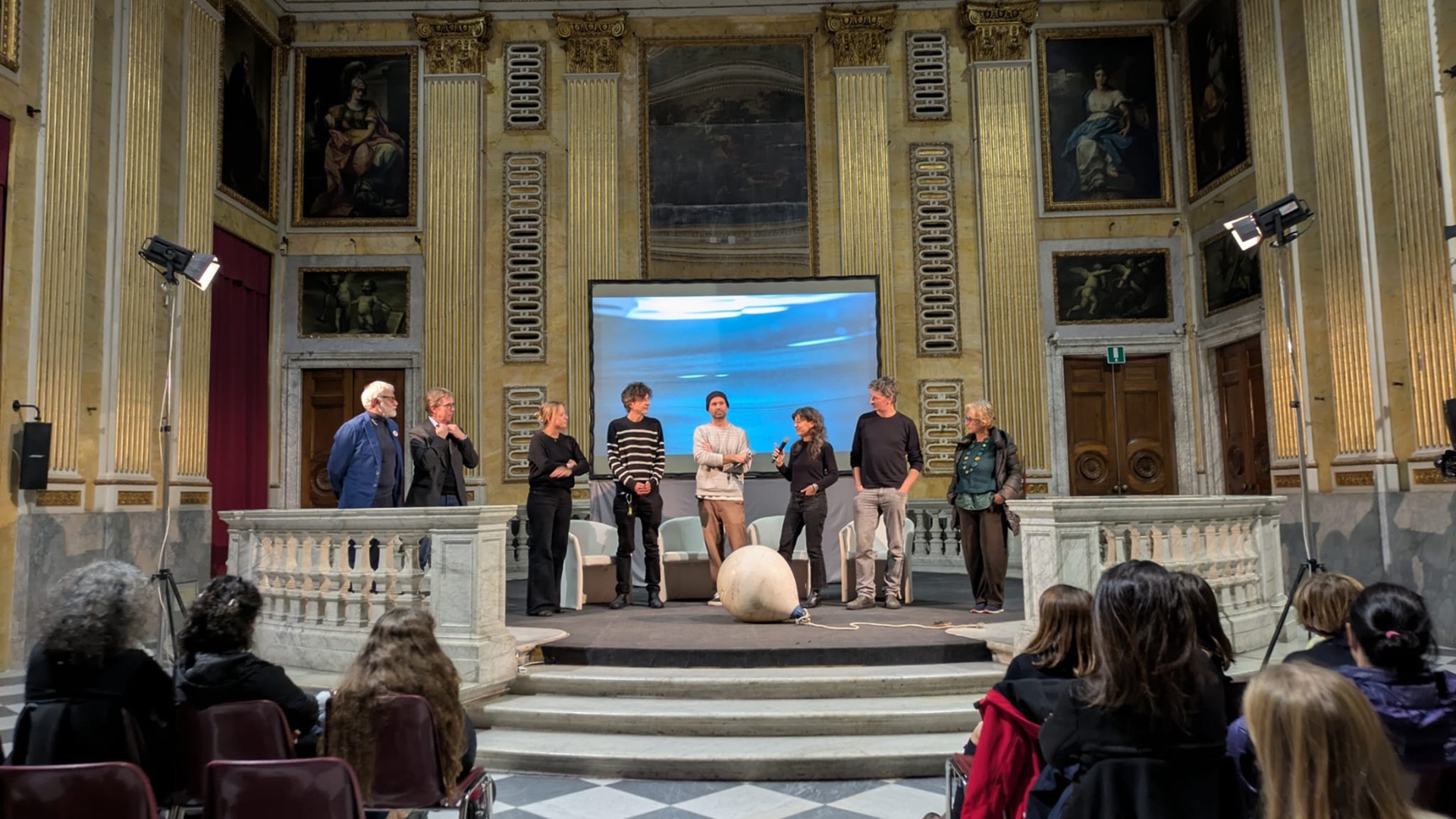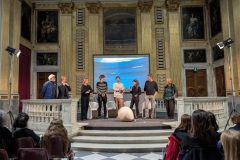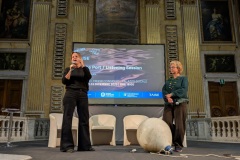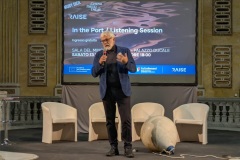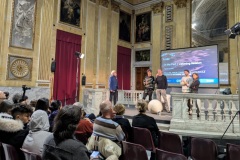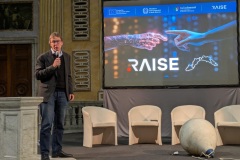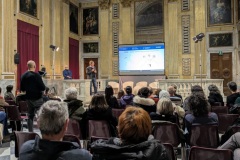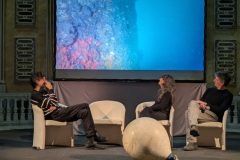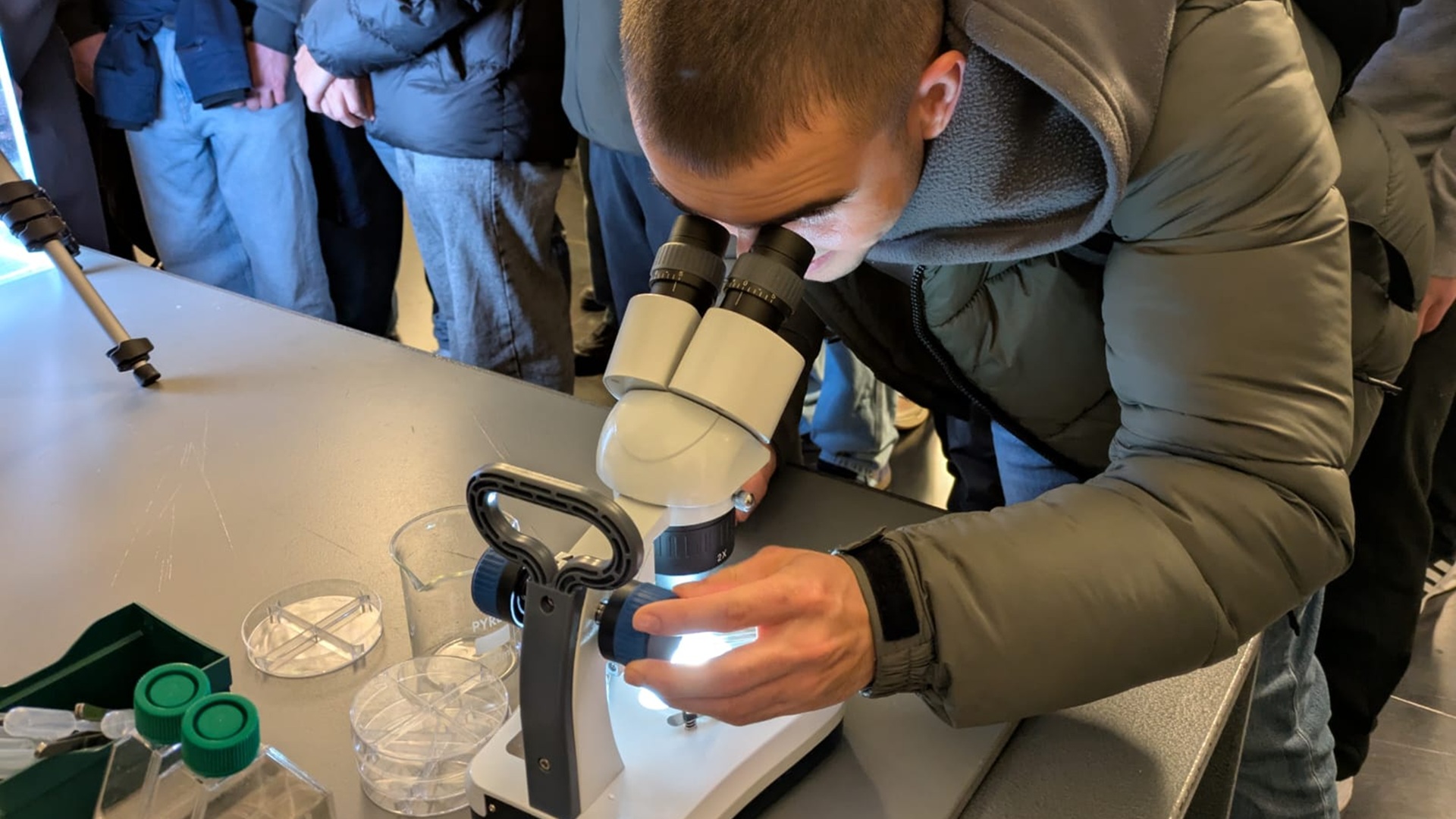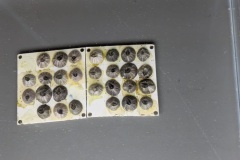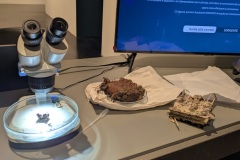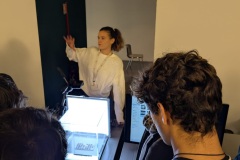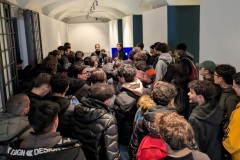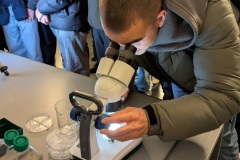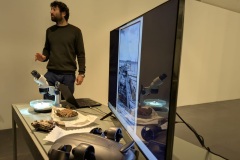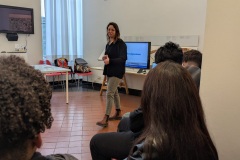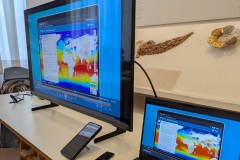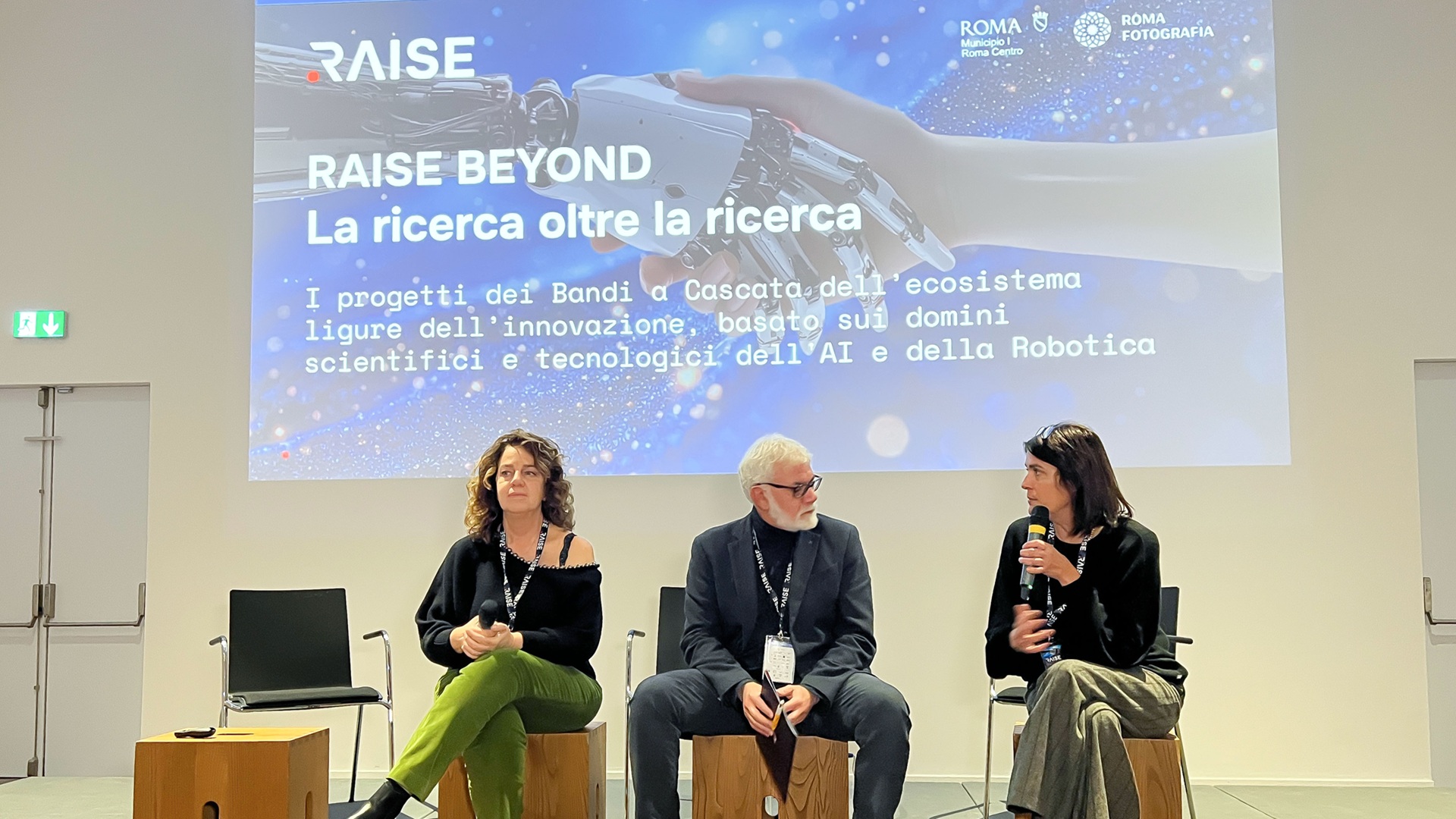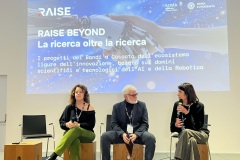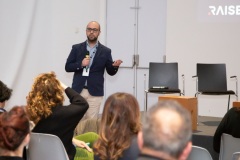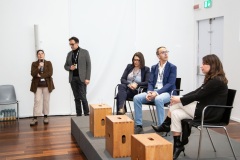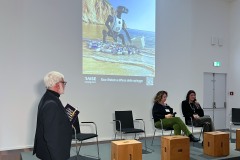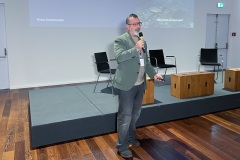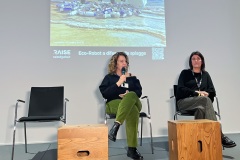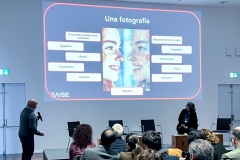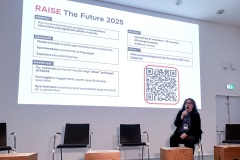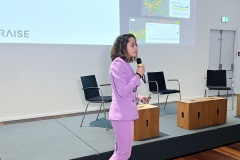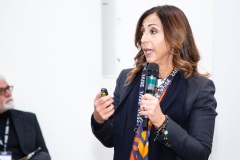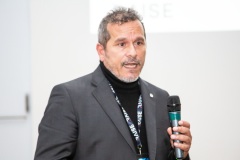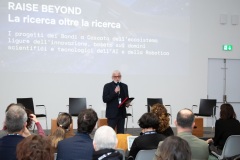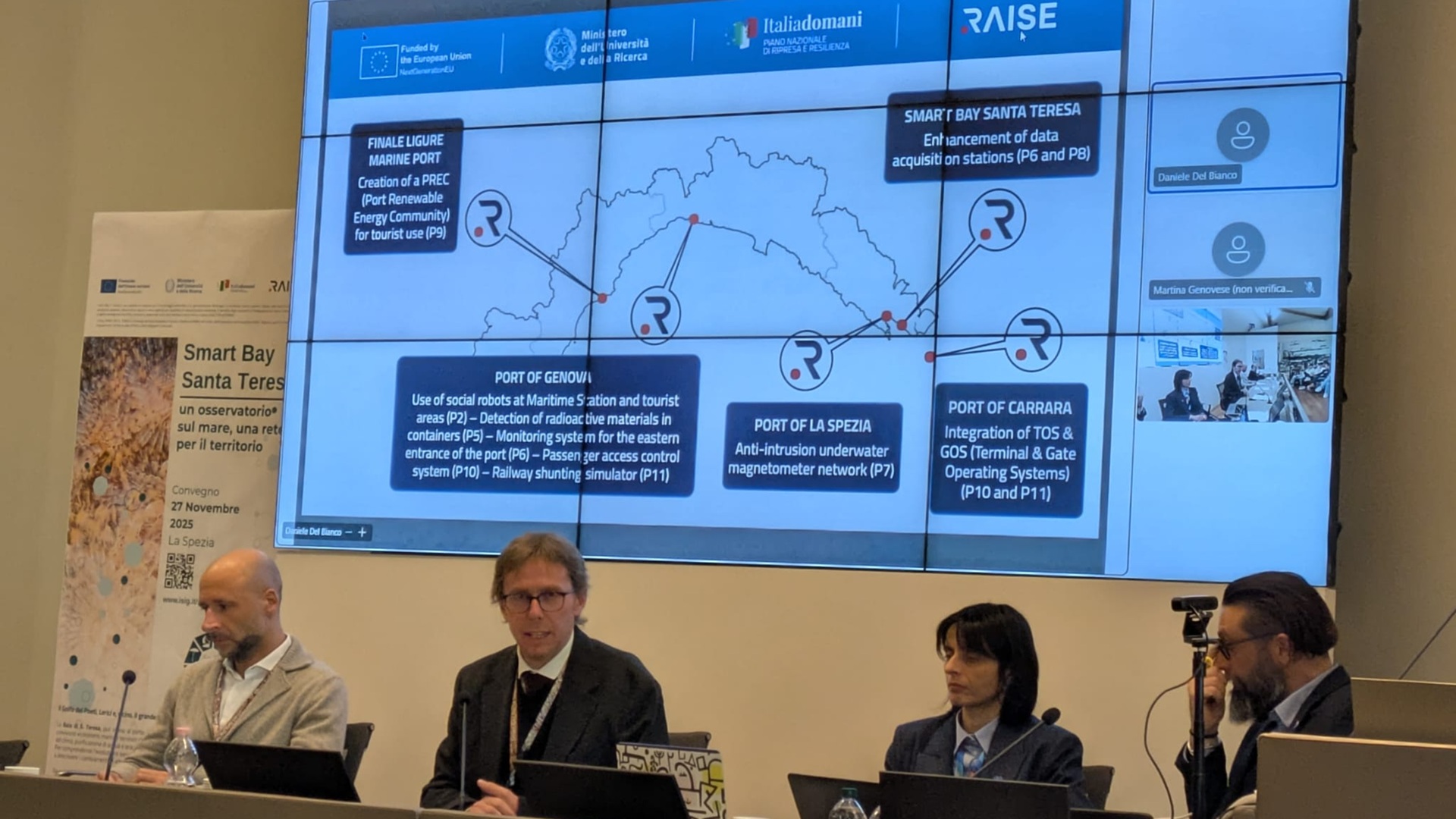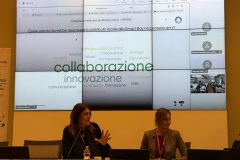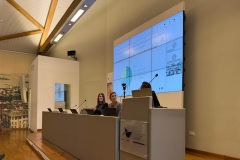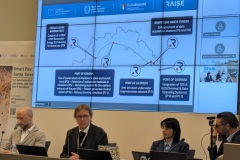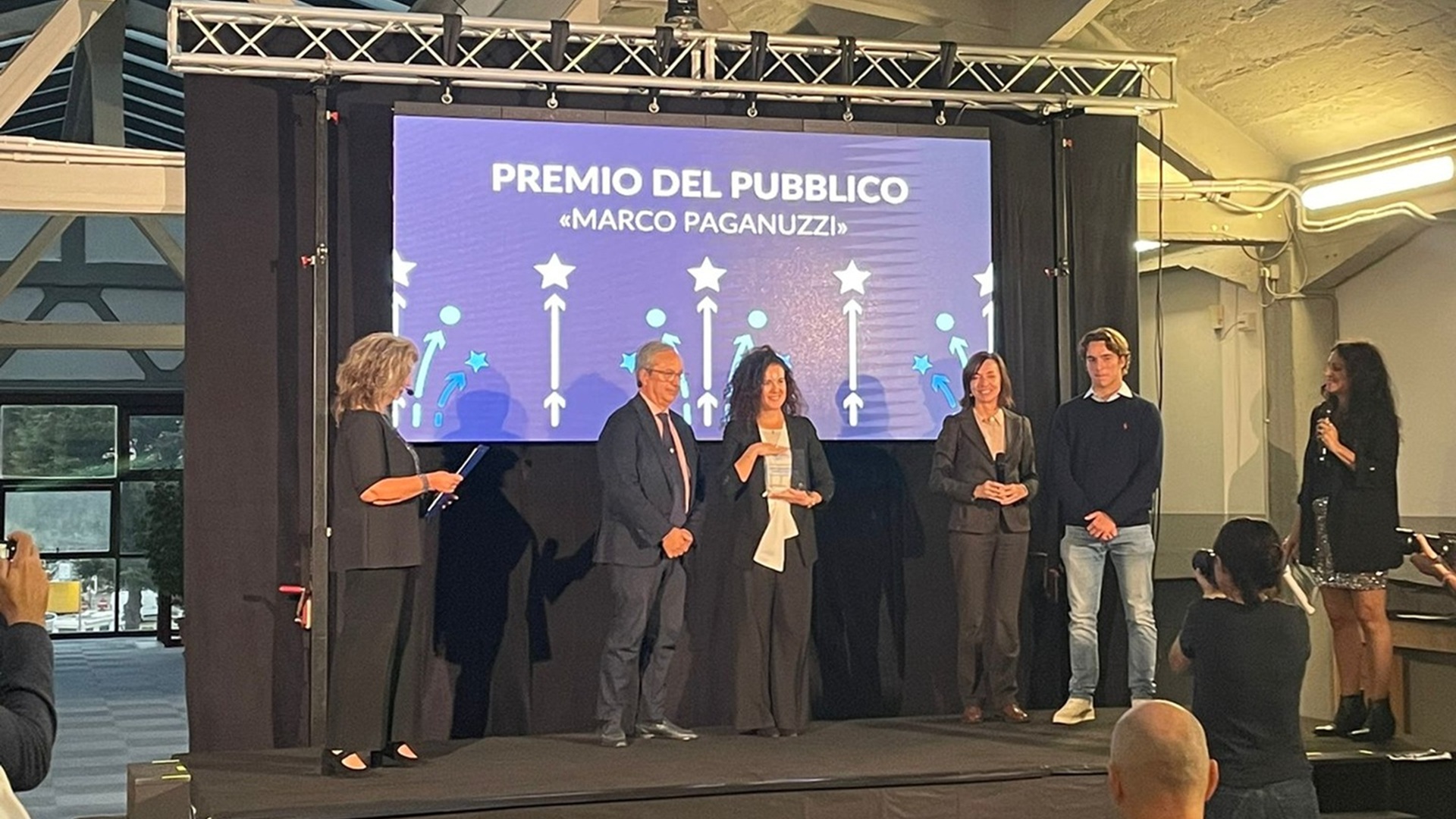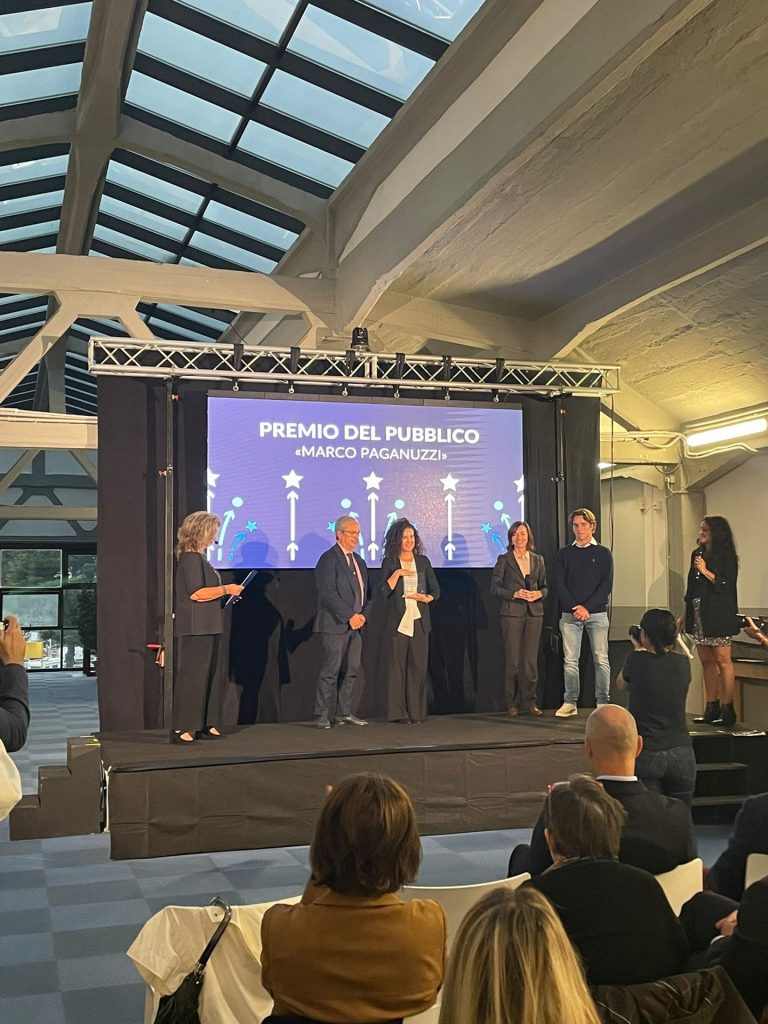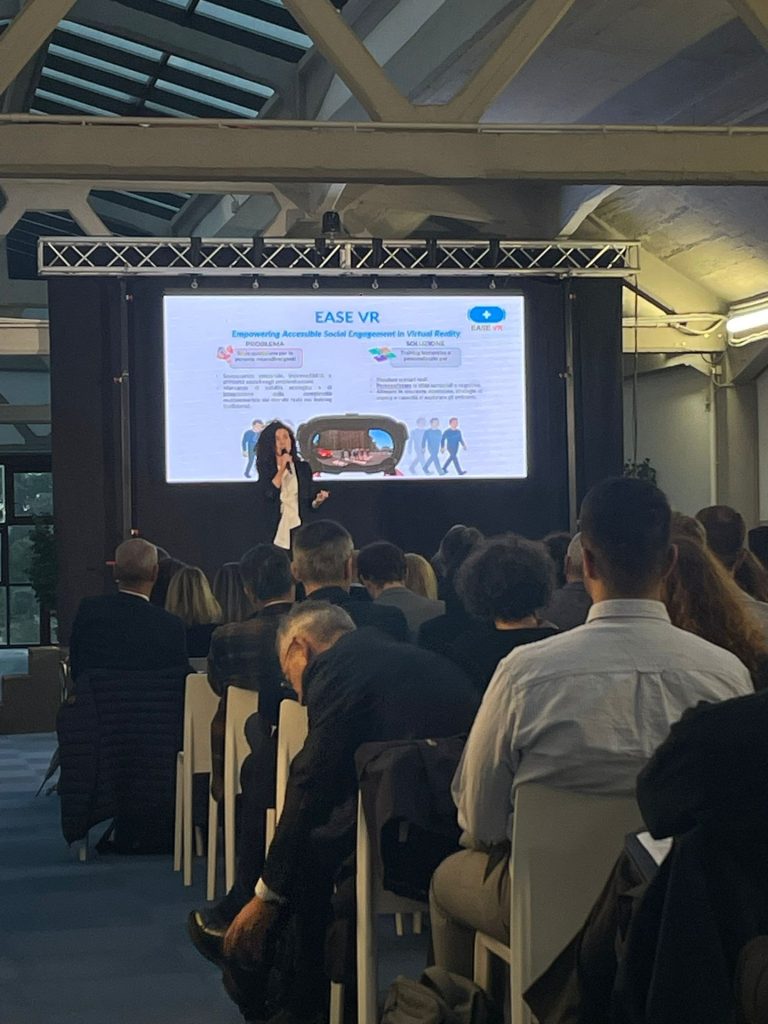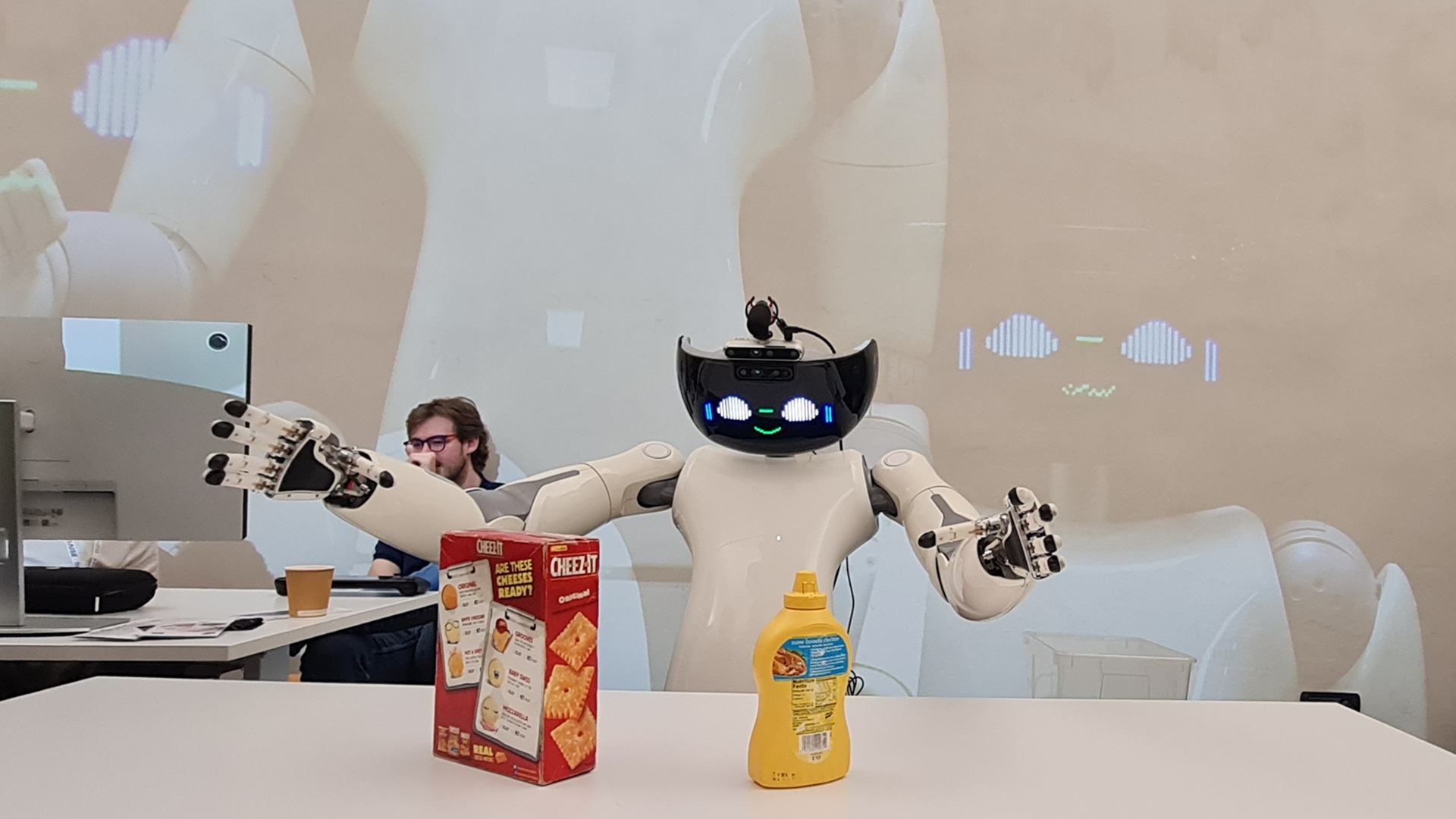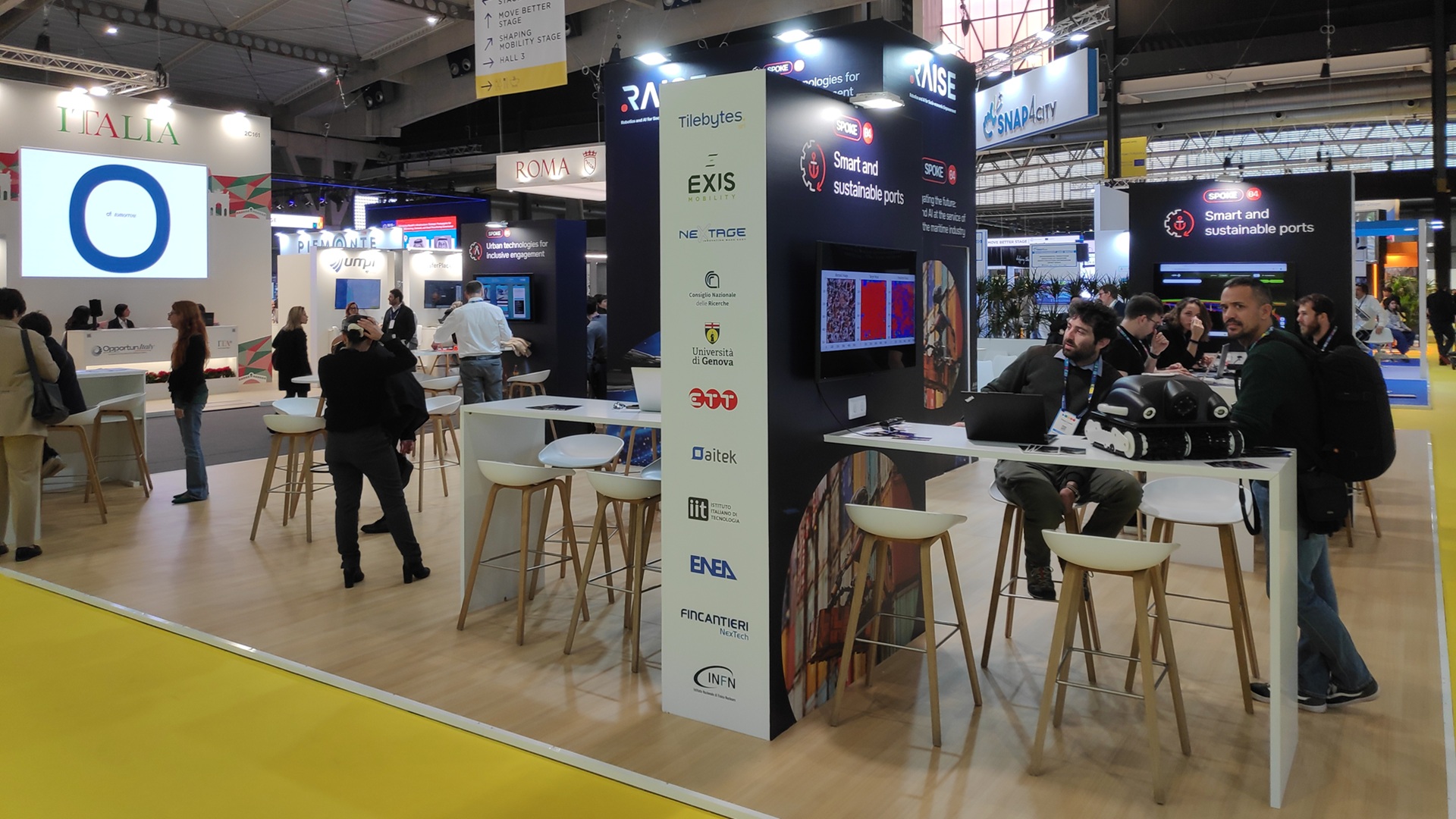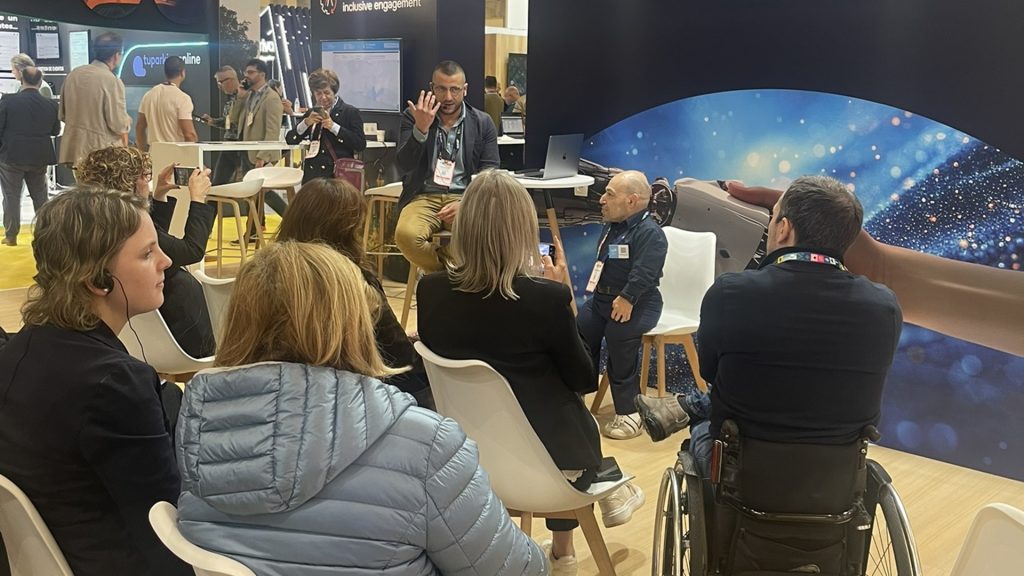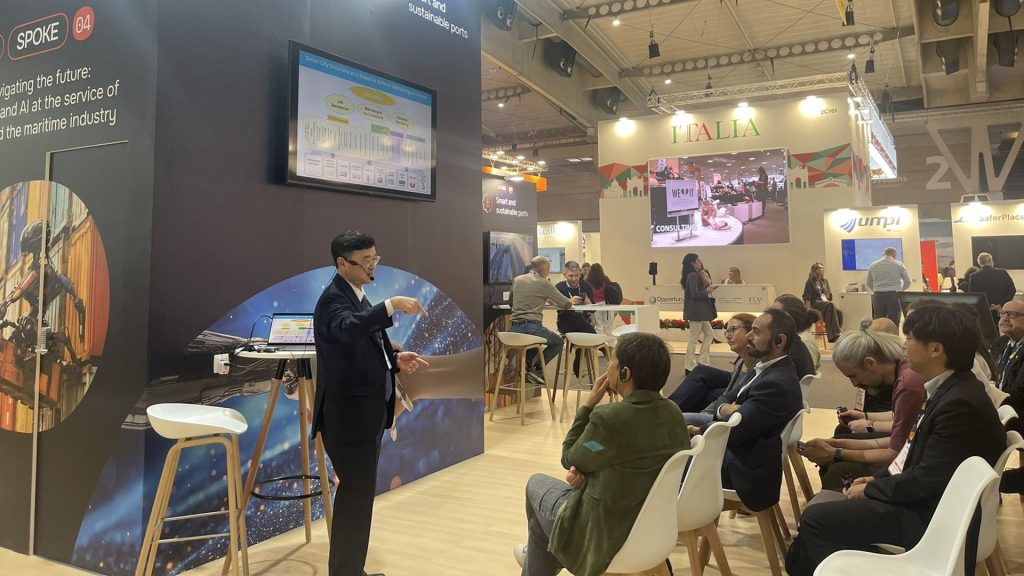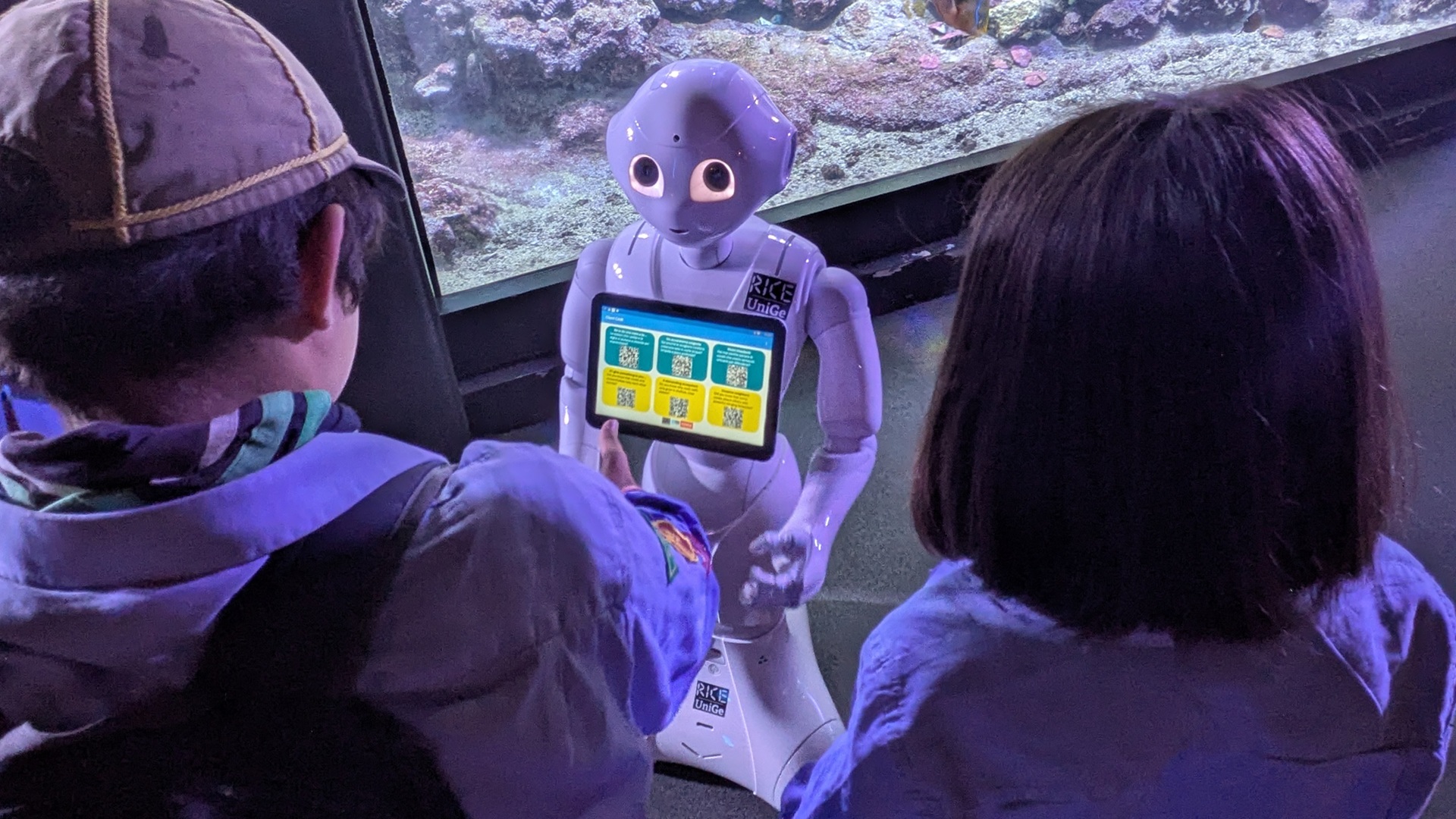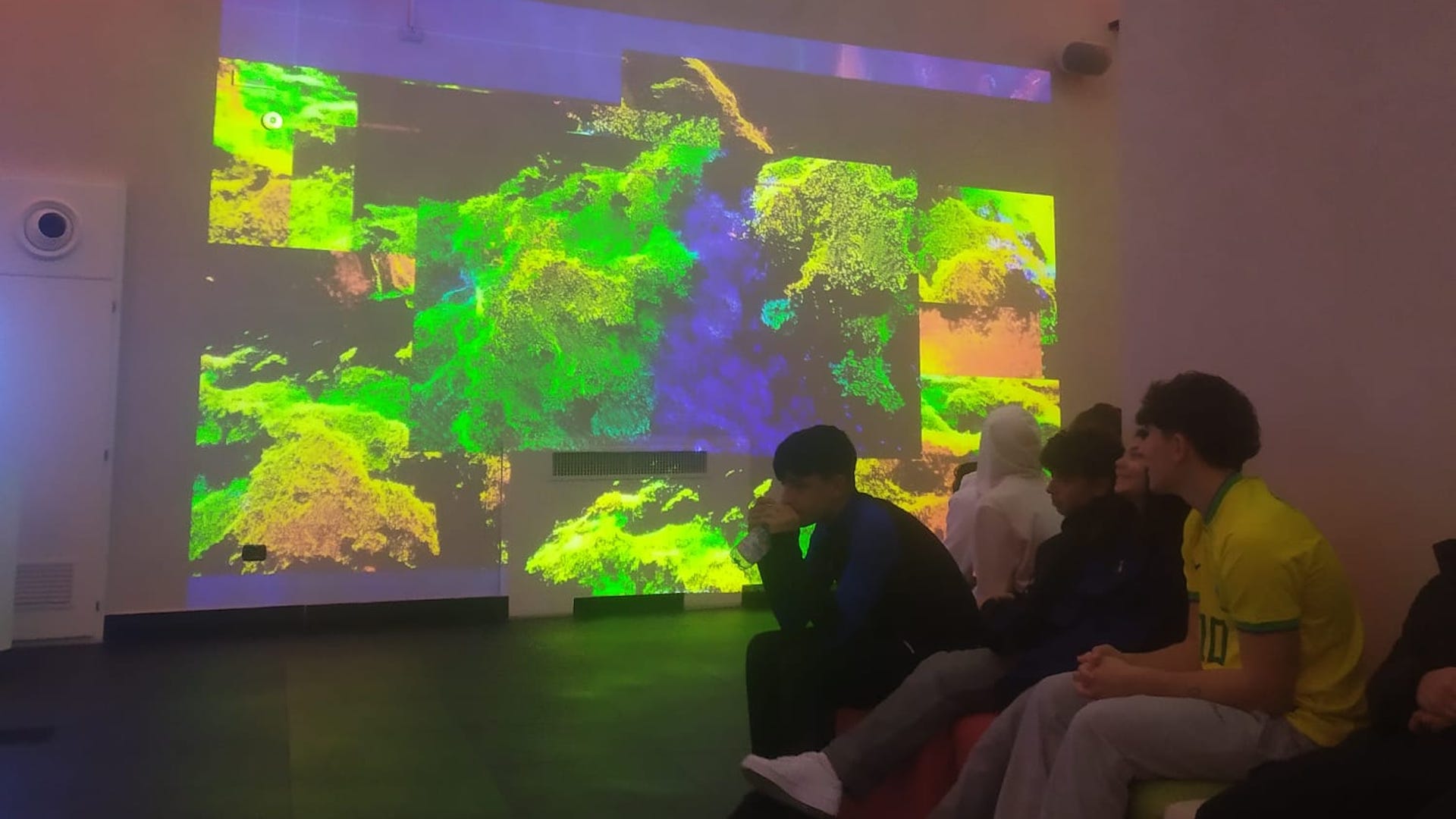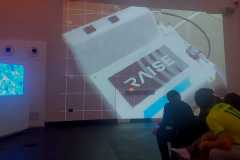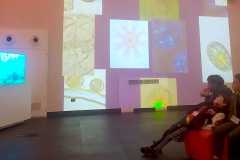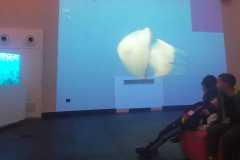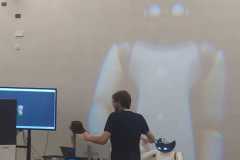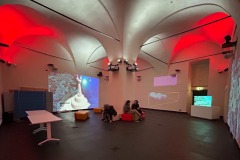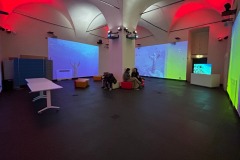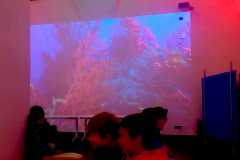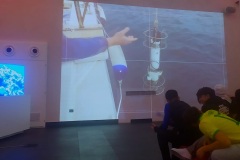For the third consecutive year, the 2025 Genoa Science Festival hosted the innovation ecosystem RAISE – Robotics and AI for Socio-economic Empowerment, which transformed the Genoa Blue District into its RAISE Village – a meeting point between science, technology, and creativity.
With over 3,000 participants in workshops, 500 visitors to the eight robotic and technological demos, 300 attendees at the five scientific aperitifs, 90 participants at the opening conference, 2,000 visitors to the immersive installation, and 300 spectators at the RAISEmotion performance, RAISE’s presence at the Festival reflected a growing public interest in applied research and its social impact.
The project, conceived and coordinated by the University of Genoa, the National Research Council (CNR), and the Italian Institute of Technology (IIT), and funded by the Italian Ministry of University and Research under Investment 1.5 (M4C2) of the National Recovery and Resilience Plan (PNRR), presented a wide-ranging programme built around a clear idea: to show how robotics and artificial intelligence can become tools to improve people’s lives, support environmental sustainability, and strengthen social cohesion.
RAISE’s journey at the Festival opened in the Sala delle Donne at Palazzo Ducale with the conference “The RAISE Ecosystem and the Visions of Tomorrow – Emerging Technologies and Shared Knowledge to Improve the Present and Imagine the Future”, attended by 90 participants from the general public and the research community.
Introduced by Cristina Battaglia, RAISE Programme Manager, and Carlo Ferdeghini, Chair of the Genoa Science Festival Scientific Committee, the event featured Silvia Biasotti (CNR–IMATI, Spoke 1), Giulia Bodo (IIT – Rehab Technologies, Spoke 2), Elisa Costa (CNR–IAS, Spoke 3), Francesca Garaventa (CNR–IAS, Spoke 4), and Simona Tirasso (University of Genoa, Spoke 5), moderated by journalist Daniele Chieffi.
The speakers shared the challenges and results of the five Spokes that make up the RAISE ecosystem: from robotics for healthcare and rehabilitation to marine environmental protection, from port digitalisation to public administration training. This mosaic of expertise demonstrated how innovation can generate real impact, enhancing quality of life and territorial sustainability. The round table provided a concrete perspective on research prospects and reaffirmed the importance of collaboration among public institutions, universities, companies, and citizens.
On 29 October, the RAISEmotion performance brought together art, science, and technology in the Sala del Maggior Consiglio of Palazzo Ducale, in front of 300 spectators, blending emotion and knowledge into a single experience.
The event, introduced by Cristina Battaglia and presented by Marco Faimali (CNR–IAS, Communication Lead for Spoke 5), featured two complementary performances.
Another Beat, created by Lidia Giannuzzi and the company La Pozzanghera, explored the theme of the digital twin and human–machine interaction, turning the heartbeat into a symbol of dialogue between the human body and technology.
The Ocean Without Us, conceived by the collective Stellare in collaboration with artist Giuseppe La Spada, gave voice to the ocean, translating data on microplastics in the Ligurian Sea into sound frequencies and moving images.
On stage and behind the scenes, RAISE researchers – including Michela Chiappalone, Veronica Penza, and Francesca Garaventa – merged scientific expertise with artistic sensibility, showing how knowledge can be transformed into visual, sonic, and theatrical storytelling.
RAISEmotion captured the true essence of the ecosystem: a project where technology does not replace humanity but accompanies it, amplifying its capacity to understand, create, and share.
At the heart of the Genoa Blue District, the RAISE Village became a ten-day open laboratory, animated by a diverse audience of students, families, and curious visitors of all ages.
Over 3,000 people took part in six interactive workshops showcasing results from the five RAISE Spokes.
In the RAISE Living Lab, visitors explored wearable systems for inclusive mobility and immersive headsets for accessible learning. The HealthTech Lab presented smart glasses and sensor-equipped chairs for the healthcare of the future. With A New Ally for Marine Ecosystems, participants virtually dived into the Ligurian Sea, discovering how AI helps study the behaviour of small marine organisms. Science at Your Fingertips, curated by Outdoor Portofino, introduced Meteo-Tracker sensors that enable citizens to contribute to environmental data collection. Beyond the Body, Into the Future, curated by the Italian Multiple Sclerosis Foundation, demonstrated how virtual reality can improve the quality of life for people with disabilities. Finally, with Digital Twins in Action, visitors discovered how robotics and AI support post-stroke rehabilitation through personalised digital models.
From 31 October to 2 November, over 500 visitors joined RAISE Action, three days entirely dedicated to robotic and technological demonstrations. Researchers and companies presented eight real-world applications, making tangible the outcomes of collaboration between academia and industry.
Among them, the FitFES system developed by FDG (Spoke 2) showcased how electrical stimulation can support motor recovery, while the R1 collaborative robot from IIT HSP (Spoke 2) demonstrated its ability to interact with people and objects, recognising gestures and movements. The ROSSINI Project (INFN, Spoke 4) presented a robot designed for remote inspections in nuclear safety contexts, while ESAOTE (Spoke 2) displayed its 3D Markerless MR/CT and US Image Registration system, integrating medical imaging and AI for advanced diagnostics. Innovation for the city and territory was also featured: ETT (Spoke 1) presented the Geolocated Data Visualization Portal, the Track Urban Accessibility (TUA) app, and Tactile Art, combining urban accessibility with sensory interaction. ETT (Spoke 3) also showcased the Digital Twin of the Sea, a 3D representation of the marine environment for sustainable resource management, while Aitek (Spoke 4) illustrated Port Gate Automation for smart logistics. Finally, the Circle Group (Spoke 4) presented technologies and services to optimise port logistics and reduce environmental impact.
Through these demonstrations, RAISE Action concluded the Village’s activities with strong public engagement, turning the Blue District into a shared space where scientific research became direct experience, accessible knowledge, and open dialogue between technology and society.
Each evening at sunset, the RAISE Village hosted over 300 people across five Scientific Aperitifs – informal yet thought-provoking conversations about ethics, technology, and the future.
Speakers included Antonio Sgorbissa (“Bring Out the Real Robots!”), Annalisa Barla (“The Ethical Frontiers of Artificial Intelligence”), Maura Casadio and Matteo Moro (“The Language of Human Movement”), Rosanna Turrisi (“Artificial Intelligence as an Ally of Medicine”), and Marco Faimali (“Welcome, Eco-Robotics!”). These encounters combined curiosity and reflection, showing the most accessible and human side of science.
The RAISE Village also hosted the immersive installation RAISE More than Human, which welcomed around 2,000 visitors into an experience merging art, research, and technology. The installation guided visitors through the RAISE ecosystem via robots, drones, sensors, 3D models, video games, and digital platforms. Images, sounds, and stories revealed the connections between artificial intelligence, natural ecosystems, and human communities, showing how scientific research can drive innovation and well-being.
With more than 6,000 participants across exhibitions, workshops, demos, performances, and meetings, RAISE’s participation in the 2025 Genoa Science Festival was a shared journey of growth.
The ecosystem demonstrated how collaboration among disciplines, institutions, and territories can generate concrete, accessible innovation. The RAISE Village offered an immersive and inclusive experience where science dialogued with art, technology, and society.
RAISE told the story of the future not as a distant horizon, but as a collective construction built on research, participation, and trust in human potential.

